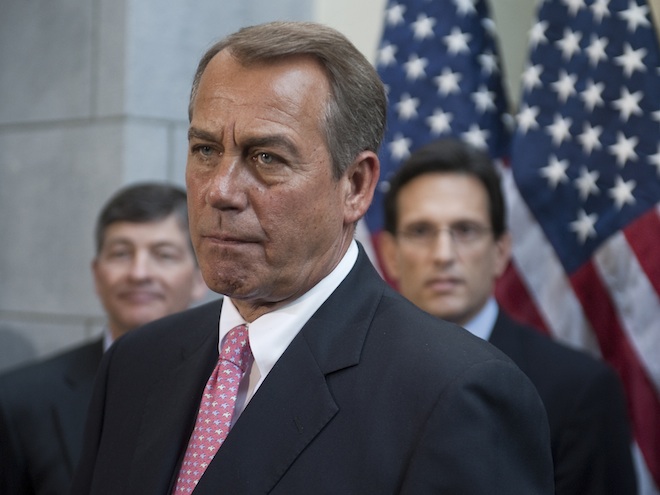House GOP leaders are set to shoot down a silver-bullet pay-for to fix Medicare physician payment rates, sources close to leadership tell TPM, even though the idea has strong support among Democrats and some key Republican lawmakers. The so-called “doc fix” is being negotiated as part of the payroll tax cut package and momentum to use war savings to eliminate the Medicare flaw has recently halted due to GOP divisions over the idea.
The idea of using unspent Overseas Contingency Operation (OCO) funds from troop withdrawals Iraq and Afghanistan has the support of top Democrats as well as influential Republicans like Senate Minority Whip Jon Kyl (AZ) and GOP Doctors Caucus chairman Rep. Phil Gingrey (GA). While President Obama and Dems want to tap into the $838 billion fund for infrastructure as well, GOP backers say it shouldn’t be used for anything other than a doc fix.
But two former Republican staffers turned health industry lobbyists say House GOP leaders are now opposed to tapping into the money even for that.
One of the sources said he heard directly from House Republican leadership that the prospect of using OCO money for a “doc fix” is moot. The second source added that leaders have issues with it from a messaging and process standpoint. Both agreed the GOP caucus is divided on the idea and making things tough for leadership — while also exacerbating headaches for physician and hospital groups that are relentlessly pushing for the offset.
“The provider community is still salivating about it as the silver bullet,” one of the lobbyists said. “The desperation is palpable. In their view, this like passing up an opportunity to go to confession and start with a clean slate.”
TPM reached out to multiple House GOP leadership aides, who would not confirm their position but declined an opportunity to deny or challenge what the sources said. Speaker John Boehner dodged a question about it at his press conference last Thursday.
The current Medicare Sustainable Growth Rate (SGR) formula contains steep 27.4 percent reductions to physician reimbursements that take effect March 1, which could destabilize the health care system and which both sides overwhelmingly want to avoid. But many Republicans prefer to fix it with real spending cuts, and see the war savings fund as fake money that shouldn’t be used as an offset because it wouldn’t otherwise be spent anyway.
On one side of the GOP divide are Kyl, Gingrey and other members who have close ties to the physician community and see OCO as their best opportunity to fix the problem for good — they argue that both OCO and SGR are gimmicks so they can cancel each other out. But that view is opposed by staunch conservatives who see OCO as a sleight of hand and fear that it could open the door to letting Dems use the fund for additional stimulus measures. Some GOP lawmakers also want to use the “doc fix” as leverage to cut health care reform and Medicare, which House Republicans passed in their December payroll tax package.
Top Republicans say they want at least a two-year “doc fix” if not a permanent solution, although the lobbyists TPM spoke with fear the current polarized climate could lead to yet another short term patch of between two and six months, despite their hopes to the contrary.
The split on the war savings offset is one of many reasons negotiations over the payroll tax cut package have hit a brick wall this week. Senate Democrats have indicated that they intend to push forward with the OCO offset in the fallback plan they are developing to save face in case the negotiations fail. Dems have been quick to note that House Republicans counted OCO savings in the Paul Ryan budget they passed last year.
The idea is seen as dead in the payroll talks unless House GOP leaders sign off on it.






